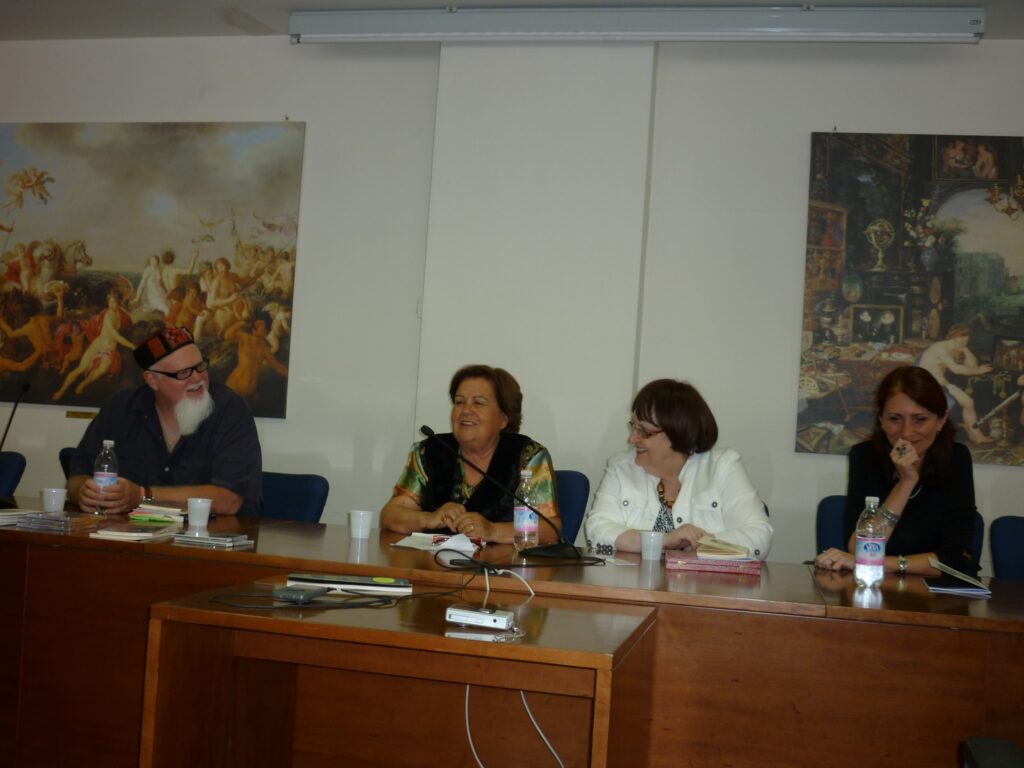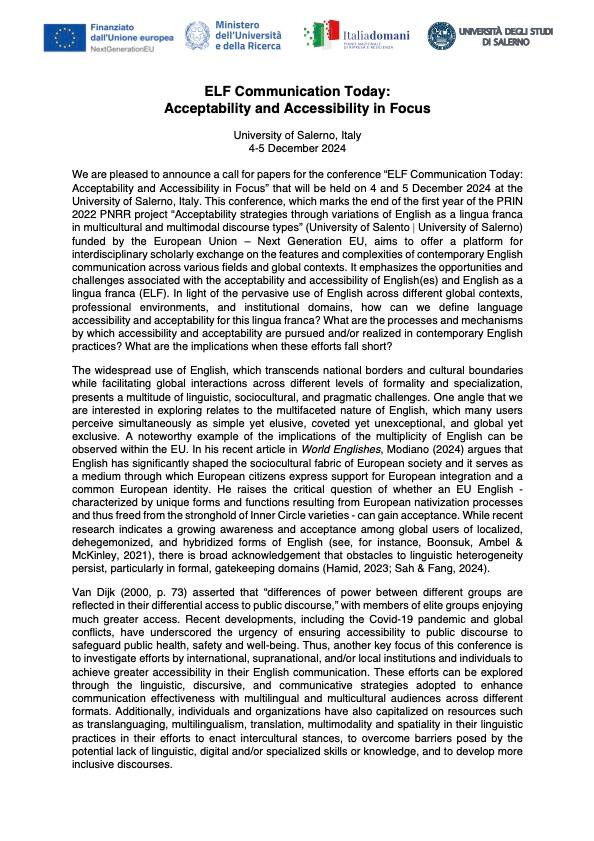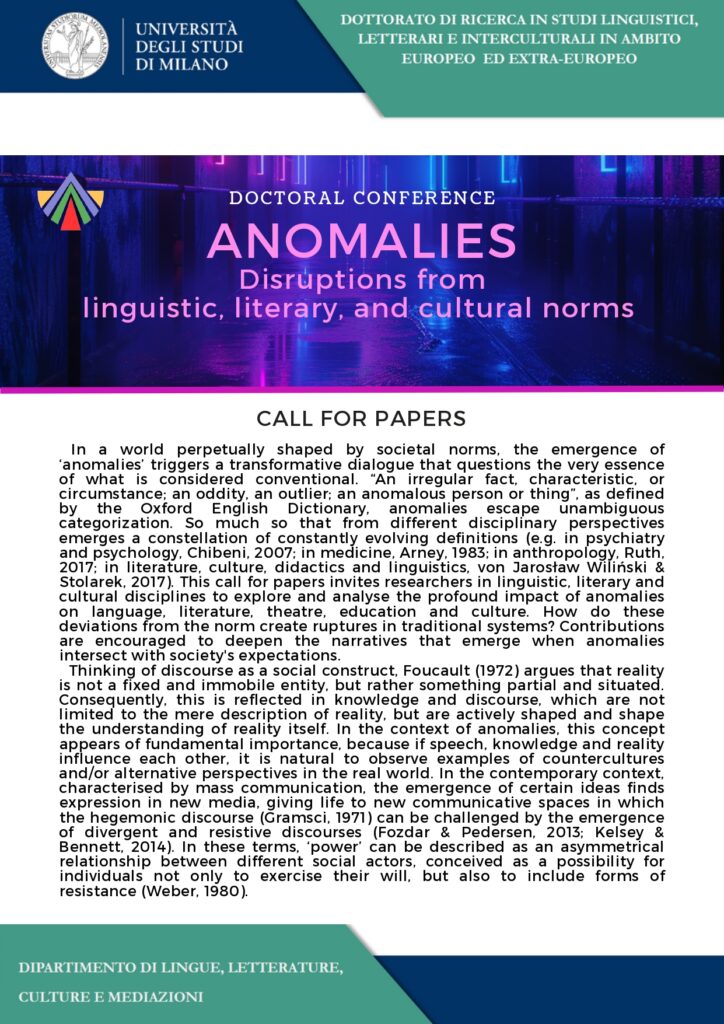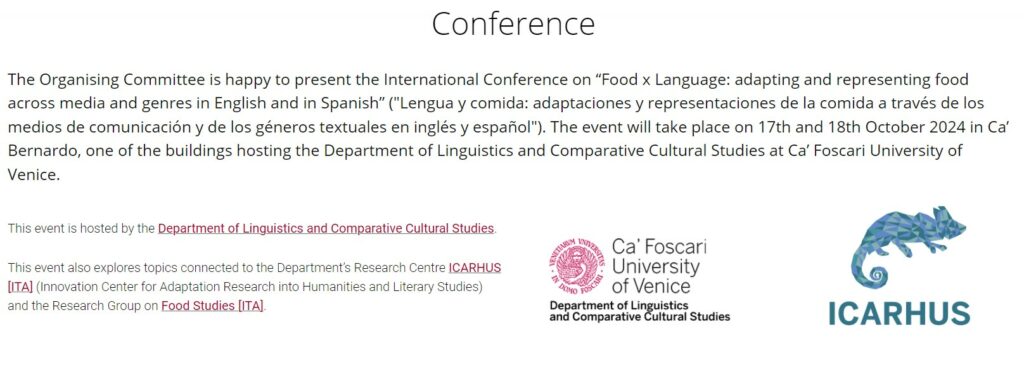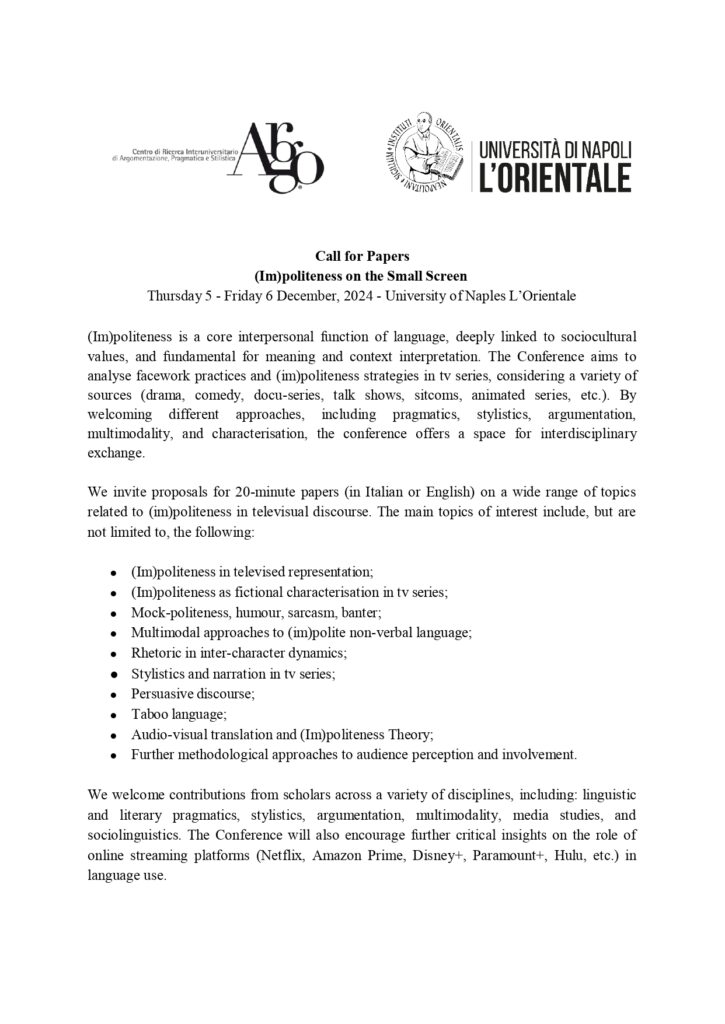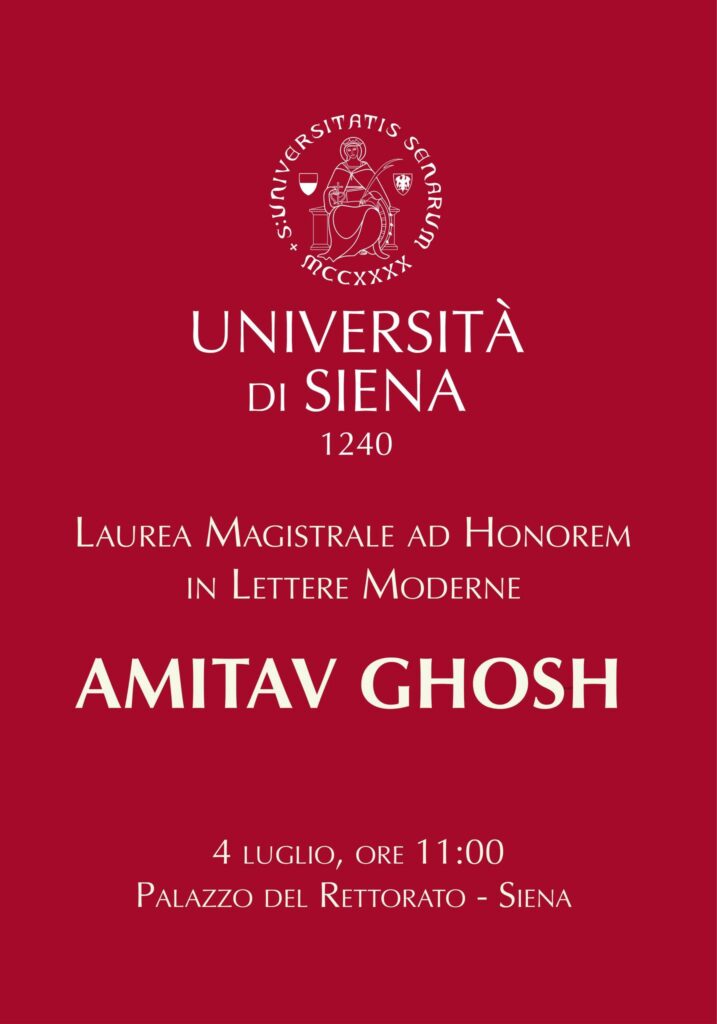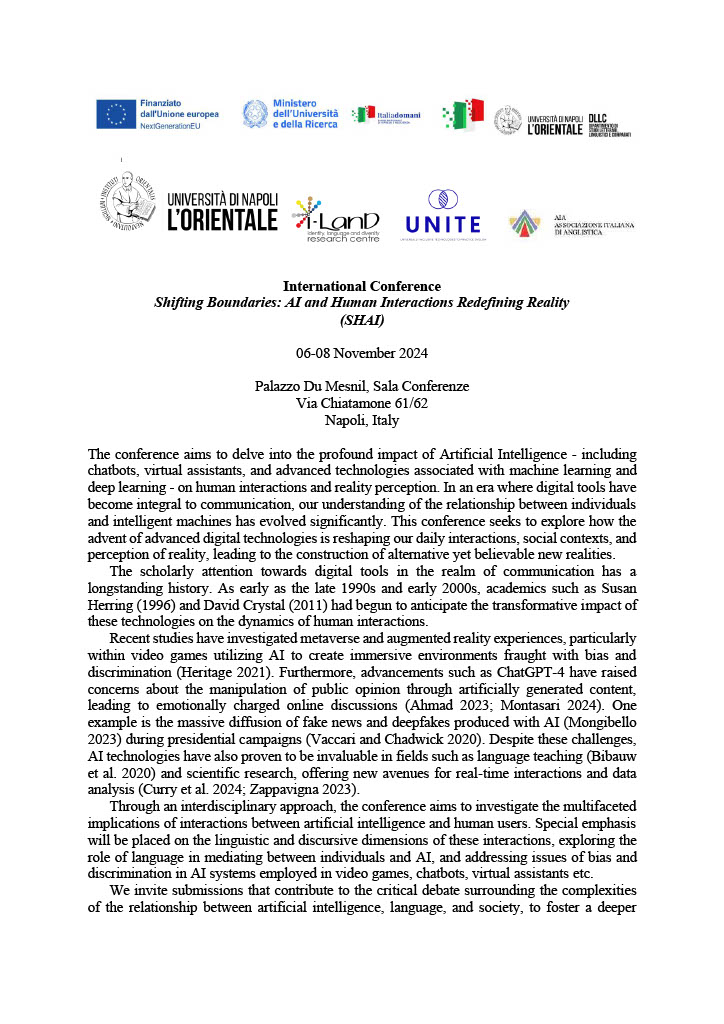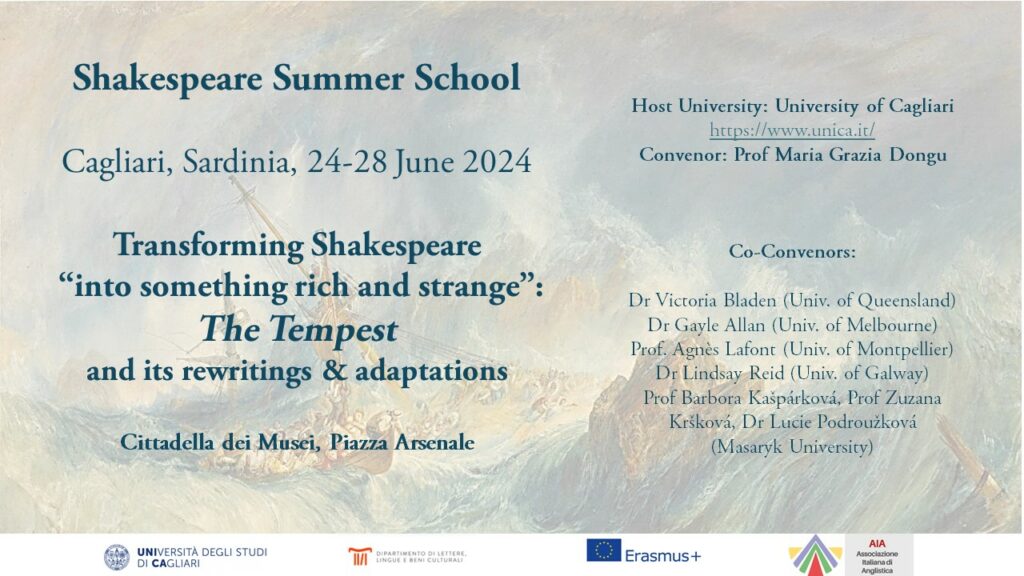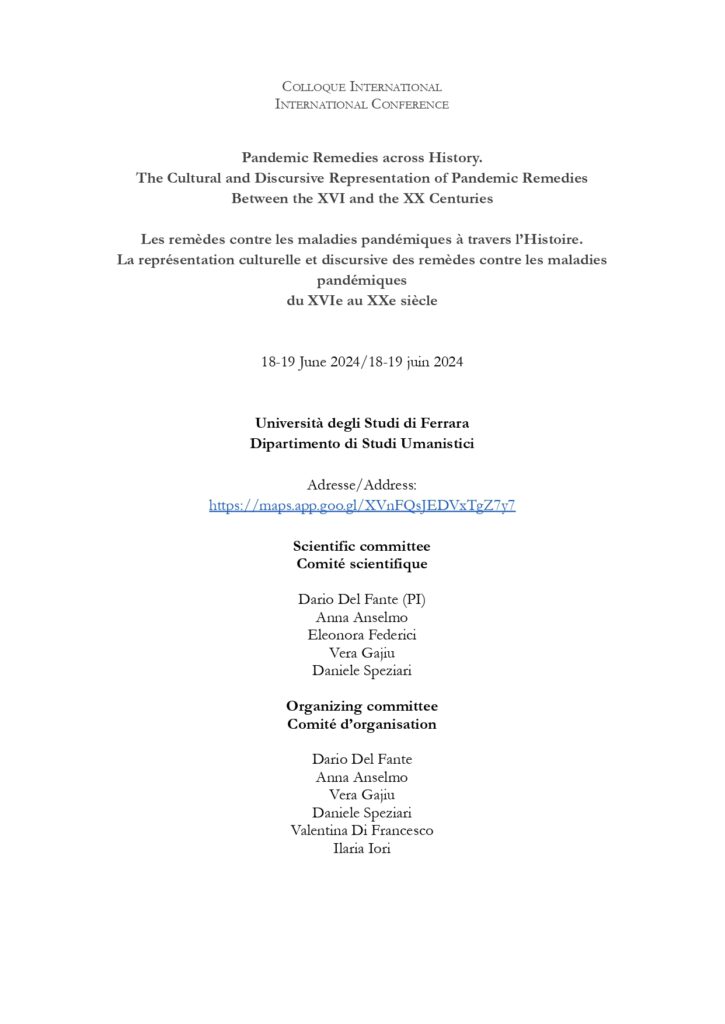CALL FOR PAPERS International Conference Shifting Boundaries: AI and Human Interactions Redefining Reality (SHAI) 06-08 November 2024 Palazzo Du Mesnil, Sala Conferenze Via Chiatamone 61/62 Napoli, Italy The conference aims to delve into the profound impact of Artificial Intelligence – including chatbots, virtual assistants, and advanced technologies associated with machine learning and deep learning – on human interactions and reality perception. In an era where digital tools have become integral to communication, our understanding of the relationship between individuals and intelligent machines has evolved significantly. This conference seeks to explore how the advent of advanced digital technologies is reshaping our daily interactions, social contexts, and perception of reality, leading to the construction of alternative yet believable new realities. The scholarly attention towards digital tools in the realm of communication has a longstanding history. As early as the late 1990s and early 2000s, academics such as Susan Herring (1996) and David Crystal (2011) had begun to anticipate the transformative impact of these technologies on the dynamics of human interactions. Recent studies have investigated metaverse and augmented reality experiences, particularly within video games utilizing AI to create immersive environments fraught with bias and discrimination (Heritage 2021). Furthermore, advancements such as ChatGPT-4 have raised concerns about the manipulation of public opinion through artificially generated content, leading to emotionally charged online discussions (Ahmad 2023; Montasari 2024). One example is the massive diffusion of fake news and deepfakes produced with AI (Mongibello 2023) during presidential campaigns (Vaccari and Chadwick 2020). Despite these challenges, AI technologies have also proven to be invaluable in fields such as language teaching (Bibauw et al. 2020) and scientific research, offering new avenues for real-time interactions and data analysis (Curry et al. 2024; Zappavigna 2023). Through an interdisciplinary approach, the conference aims to investigate the multifaceted implications of interactions between artificial intelligence and human users. Special emphasis will be placed on the linguistic and discursive dimensions of these interactions, exploring the role of language in mediating between individuals and AI, and addressing issues of bias and discrimination in AI systems employed in video games, chatbots, virtual assistants etc. We invite submissions that contribute to the critical debate surrounding the complexities of the relationship between artificial intelligence, language, and society, to foster a deeper understanding of the evolving landscape of AI and human interactions. The topics of interest include, but are not limited to: • Language, Discourse, and AI Interaction • Gender and Diversity in AI Applications • Ethical Considerations and Bias in AI Systems • AI in Virtual Worlds • Education and training in the era of AI • Human-Centred AI Design • AI in Scientific Research • AI in Creative Industries and Cultural Production • Diversity and Inclusion in AI The conference will be in person only. The language of the conference is English. References Ahmad, S.F., Han, H., Alam, M.M. et al. (2023), “Impact of artificial intelligence on human loss in decision making, laziness and safety in education”, Humanities, Social Sciences and Communication, 10, 311; Bibauw, S., Van den Noortgate, W., Francois, F., & Desmet, P. (2022), “Dialogue systems for language learning: A meta-analysis”, Language Learning & Technology, 26(1), 1-24. Crystal, D. (2011), Internet Linguistics: A Student Guide, London: Routledge. Curry N., Baker P., Brookes G., (2024), “Generative AI for corpus approaches to discourse studies: A critical evaluation of ChatGPT”, Applied Corpus Linguistics, 4.1. Heritage, F. (2021). Language, Gender, and Videogames: Using Corpora to Analyze the Representation of Gender in Videogames, London: Palgrave Macmillan Herring, S. C. (ed.). (1996). Computer-mediated communication: Linguistic, social and cross-cultural perspectives, Amsterdam: Benjamins Mongibello, A. (2023). “How Political Deepfakes Shape Reality: A Visual Framing Analysis”, Textus, English Studies in Italy, 1/2023, pp. 91-112 Montasari, R. (2024). “The Dual Role of Artificial Intelligence in Online Disinformation: A Critical Analysis. In: Cyberspace, Cyberterrorism and the International Security in the Fourth Industrial Revolution.”, Advanced Sciences and Technologies for Security Applications. Springer, Cham. https://doi.org/10.1007/978-3-031-50454-9_11 Vaccari C, Chadwick A (2020), “Deepfakes and disinformation: exploring the impact of synthetic political video on deception, uncertainty, and trust in news”, Social Media Soc 6(1) Zappavigna, M., 2023. “Hack your corpus analysis: how AI can assist corpus linguists deal with messy social media data”, Applied Corpus Linguistics, 3 (3). Submission Guidelines: We invite proposals on any topic relevant to the conference theme. Submissions are limited to one abstract per person. Each talk selected for presentation will be allotted 20 minutes followed by 10 minutes of discussion. Abstracts have to be written in English and should not exceed 350 words excluding references. Proposals should include: title of the talk, name of author and affiliation, email address, a short bio-bibliographical sketch (max 100 words) and up to five keywords. All submissions will undergo a peer-review process. Abstracts can be sent to shaiconference.unior@gmail.com. The deadline for submitting an abstract is July 15, 2024. For more information and updates, please send an email to shaiconference.unior@gmail.com or visit our website. If you want to know more about the University of Napoli “L’Orientale” please visit: https://www.unior.it/it Important Dates: Abstract Submission Deadline: 15 July 2024 Notification of Acceptance: 09 September 2024 Conference Dates: 06-08 November 2024 Conference convenor: Anna Mongibello (Università di Napoli “L’Orientale”) – amongibello@unior.it Scientific Committee Giuseppe Balirano, Università di Napoli “L’Orientale” Serge Bibauw, University of Louvain (Belgium) Paolo Frascà, University of Toronto, Toronto, (Canada) Adriano Ferraresi, Università di Bologna, Campus Forlì Frazer Heritage, Manchester Metropolitan University (UK) Francesca Raffi, Università di Macerata Katherine Russo, Università di Napoli “L’Orientale” Organizing Committee Serena Cecchini, Università di Napoli “L’Orientale” Valentina De Brasi, Università di Napoli “L’Orientale” Giada Ciervo, Università di Napoli “L’Orientale” Beatrice Moretti, Università di Macerata Daniele Polizzi, Università di Bologna Venue: University of Naples “L’Orientale”, Palazzo du Mesnil, via Chiatamone 61/62 – Napoli, Italy

